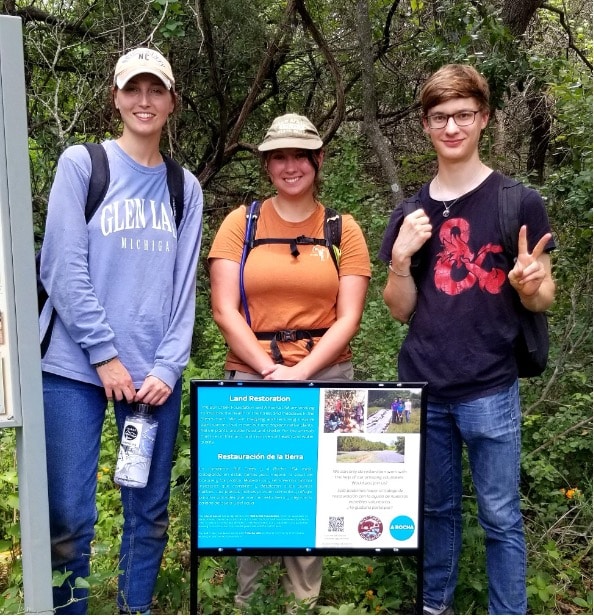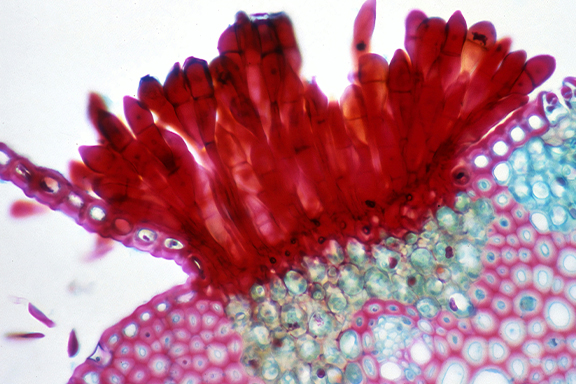God the Gardener
‘Fear not, for I have redeemed you;
I have called you by name, you are mine.
When you pass through the waters I will be with you…
and the flame shall not consume you.’ (Isaiah 43:1-2 RSV)
Imagine Mary Magdalene, alone around sunrise, weeping outside her beloved teacher’s tomb. Jesus’ body has disappeared, and as she looks in one more time, she finds two angels instead. She cries out to them, ‘They have taken away my Lord, and I do not know where they have laid him.’ (John 20:13 RSV) Can’t we all resonate with this feeling? In sadness or anger we cry out for God and hear silence. We look for him and find only darkness. Nevertheless, Mary turns around and sees Jesus, mistaking him for the gardener. Perhaps, she saw a deeper truth. Then, once Jesus spoke her name, she recognized him.
In love, Jesus spoke Mary’s name, and she knew her Redeemer. This is not unlike the beginning of creation, when God spoke the heavens and the earth and everything in them into existence. Did he speak the names of the stars, the waters, and the animals? Or was it Jesus’ life-giving name that he whispered into the ether? However we imagine it, God spoke, and from his love each creation came into being.
This pattern changed when God arrived at the task of creating humans. We may imagine a Divine Gardener who, rather than simply speaking, knelt in the loamy soil, gathered it in his hands and fashioned a new creature. Then, for the first time, God breathed his own life into this body, ‘and man became a living being.’ (Genesis 2:7) The story goes on to describe how the gardening God planted Eden, a fitful home for the human he had made. Adam’s task is to tend and keep the creatures of the garden, which begins with giving them a name.
Last year, I experienced this task of naming in a new way as I prepared for the birth of my first child. My husband and I chose her name while she was still in the womb, and our Lydia began to feel like a real person. Now that she’s born, I sing and coo her name and am filled with love for this little creature.
Naming involves careful attentiveness, considering the unique nature of the one being named. This attention cultivates love, but it has the potential to break our hearts, too. When Adam was cast out of Eden, he was ripped away from the perfect home God made for him. Even so, God did not revoke Adam’s task to cultivate and tend the earth. It did, however, become more difficult, full of toil and heartache. Any gardener knows that this passion can come with frustration, confusion and back-breaking tedium.
Gardening opens up our hearts to a particular place, like the love God had when he first created. We learn the names of plants and the insects, birds and animals that visit them. We become deeply familiar with the texture and smell of the soil, the movement of the sun across a patch of land, the times we can expect rain. When our plants are choked out by weeds or die from too much sun, it can be truly heartbreaking.
Throughout my pregnancy, I hiked the rolling hills near my home in Los Angeles. As I noticed the change in seasons along the ‘Victory Trailhead’, I described to Lydia what she would see when she was born: milkweed seeds carried in silky parachutes by the wind, Red-tailed Hawks circling round the sky, rattlesnakes slinking across the trail, elderberry trees offering their restorative fruit. In my little native plant garden, I try to do my part to care for these creatures. It takes time to develop a love for creepy crawlies like tarantulas, lizards and snakes, but the thrill I get when I see these creatures shows how gardening has opened my heart in unexpected ways.
I also told Lydia about our less desirable neighbours: Black Mustard and other invasive grasses that put our region in serious danger of wildfire. When apocalyptic fires broke out across Los Angeles at the start of the year, I somewhat jokingly said to my friend, ‘If Victory Trailhead ignites, we’re all doomed.’ Yet that’s exactly what happened.
Thankfully, our home was spared, but thousands of others – human and non-human – were not so fortunate. I am heartbroken when I think of the animals that were too slow to flee the fires whipped up by hurricane level winds, of the birds without shrubs to feed them, of marine life flushed with toxic debris when the rains finally came. I fear for my own daughter, whose fragile lungs breathe in this putrid air, and I wonder what sort of world she will grow up in as environmental disasters explode in frequency and severity.
But remember: when Adam was expelled from the Garden, God never left him. In his Hymns on Paradise, St. Ephrem the Syrian sings of Adam’s salvation, which is our hope too:
‘Adam’s Lord came out to seek him;
He entered Sheol and found him there,
Then led and brought him out
To set him once more in Paradise.’
Throughout the Bible, God follows humankind into the desert and the wilderness. When Hagar fled into the desert, God was there. During the Israelites’ forty years of wandering, God was there. In Gethsemane, where our Lord grieved and prayed, God was there. Even at the empty tomb, God was there.
When Mary wept outside the tomb, she met the Divine Gardener, the one who tends our broken hearts and plants life, beauty, and goodness deep in our souls. We can imagine Jesus, the new Adam, singing these words:
‘I come to my garden, my sister, my bride,
I gather my myrrh with my spice,
I eat my honeycomb with my honey,
I drink my wine with my milk.’ (Song of Solomon 5:1)
A good gardener, Jesus will restore us to the Eden he planted in the beginning: there we will find the myrrh he was given as a baby, the spices he was anointed with at his burial, and the milk and honey of the promised land. By him all things were created, all things will be redeemed to him: humans, milkweed, hawks, and every other creature.
Already, I see this transformation in the burn scars across Los Angeles: our community has come together in amazing ways to care for the landscape and the dispossessed. Wildlife cameras monitored by the Chaney Trail Corridor have already found bobcats, quail, deer and other creatures seeking sanctuary in unburned areas, and they have documented singed plants like Chaparral Yucca and Laurel Sumac already sprouting back to life.
God’s promise is a restoration of Eden: ‘And the land that was desolate shall be tilled, instead of being the desolation that it was in the sight of all who passed by. And they will say, “This land that was desolate has become like the garden of Eden; and the waste and desolate and ruined cities are now inhabited and fortified.”’ (Ezekiel 36:34-35) While the fires rage and the floods roar, let us seek and cultivate the seeds of hope that God has planted in his creation.
By Autumn Ricksecker


